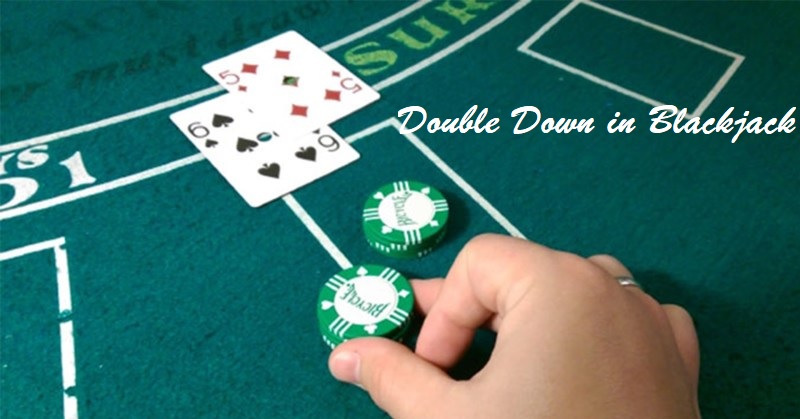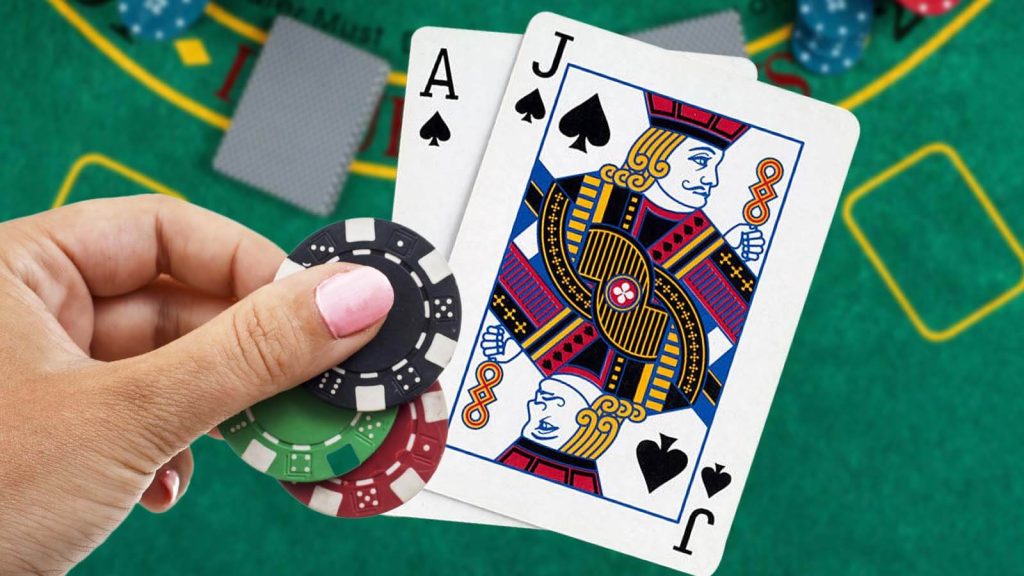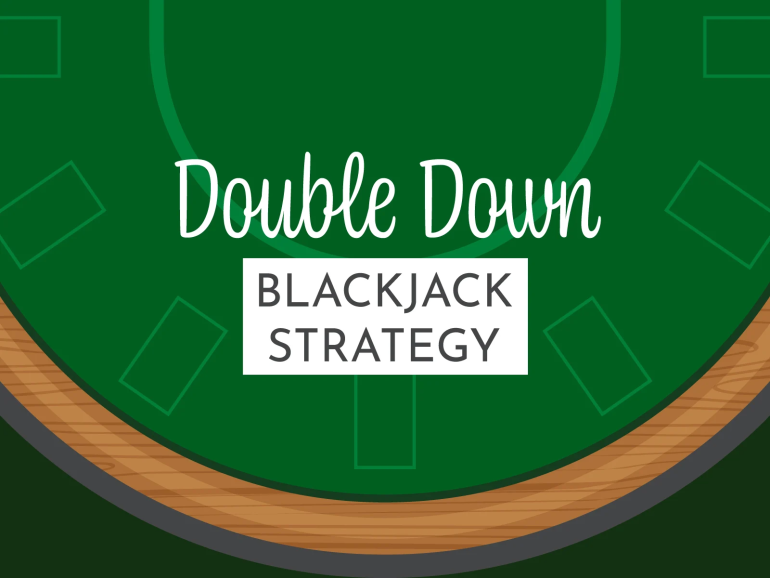What does double down mean in blackjack? This strategic move is one of the most thrilling decisions a player can make at the blackjack table. Doubling down allows you to double your original bet in exchange for receiving just one additional card, making it a high-risk, high-reward option that can significantly impact the outcome of a game. Understanding what is double down in blackjack is essential for anyone looking to enhance their gameplay, as it often serves as a pivotal moment that can turn the tide in your favor.
The allure of doubling down lies in its potential to maximize profits when the odds are in your favor, but it also carries the risk of losing more if the next card isn’t what you hoped for. This move requires not just knowledge of the game, but also a keen sense of timing and a clear understanding of the odds.
Understanding what double down means in blackjack
What does double down mean in blackjack? At its core, doubling down is a strategic decision that allows players to increase their initial bet in exchange for receiving only one additional card. This move is available after the first two cards are dealt and is typically used when a player believes that their hand can be significantly improved with just one more card. Understanding what is double down in blackjack is crucial for anyone looking to maximize their winnings and minimize their losses.
When you choose to double down, you double your initial wager, and the dealer deals you one final card to complete your hand. For example, if your original bet was $10, doubling down would require you to place an additional $10 bet, and you would then receive one more card. After that, you must stand, regardless of the outcome of the final card.

What does double down mean in blackjack? Common scenarios where doubling down is most advantageous include when you hold a hard total of 9, 10, or 11. These hands are considered strong candidates for doubling down because the odds of drawing a 10-value card are high, which would result in a powerful hand. For instance, if you have a total of 11 and the dealer shows a low card, doubling down is often the optimal move, as there’s a good chance of hitting 21 or at least ending with a high total.
Another situation where players might consider doubling down is when holding a soft hand (a hand that includes an Ace). For example, if you have an Ace and a 6 (a soft 17), doubling down can be a smart move, especially if the dealer’s upcard is weak (like a 5 or 6). This strategy leverages the flexibility of the Ace, which can count as either 1 or 11, allowing for a strong final hand.
When can you double down in blackjack?
When can you double down in blackjack? This is one of the most important questions a player needs to understand to effectively use this powerful strategy. Doubling down is typically allowed after you’ve received your first two cards. At this point, you have the option to double your initial bet in exchange for receiving only one additional card. What does double down mean in blackjack? However, the conditions under which you can double down can vary based on the rules of the casino or the specific variant of blackjack you are playing.
General rules for doubling down
In most traditional blackjack games, doubling down is permitted immediately after the first two cards are dealt. To do this, you must place an additional bet equal to your original wager, and you will receive one additional card. After this, your hand is complete, and you must stand regardless of the new total. The strategy of doubling down is particularly appealing when you have a strong hand that could be significantly enhanced by just one more card.
Variations across casinos and blackjack variants
While the general rule allows you to double down after any two cards, some casinos and online platforms have variations that might affect your decision. For instance, in some versions of blackjack, you are only allowed to double down on specific hand totals, such as 9, 10, or 11. Additionally, certain blackjack variants, like European Blackjack, may impose restrictions such as prohibiting doubling down after a split or allowing it only on hard totals.
What does double down mean in blackjack? Moreover, in some casinos, players are permitted to double down even after splitting pairs, giving them an additional opportunity to capitalize on favorable situations. However, these rules can differ widely, so it’s crucial to be familiar with the specific rules of the game you are playing.
Ideal hands for doubling down
The most common and ideal hands for double down blackjack are totals of 9, 10, or 11. These are considered strong hands because the probability of drawing a 10-value card, which would give you a total of 19, 20, or 21, is relatively high. For example, if you are holding a total of 10 and the dealer’s upcard is a 6, doubling down is generally the best move, as it places you in a strong position to win the hand.
Another scenario where doubling down is advantageous is when you have a soft hand, particularly soft 16 to soft 18 (such as an Ace and a 5, 6, or 7). If the dealer shows a weak upcard, like a 5 or 6, doubling down can be a strategic move to increase your potential winnings.
When to double down in blackjack: strategy and tips
What does double down mean in blackjack? Knowing when to double down in blackjack is a crucial skill that can significantly enhance your gameplay and increase your chances of winning. Doubling down is not merely about doubling your bet; it’s about making calculated decisions based on the cards in your hand and the dealer’s upcard. In this section, we’ll explore strategic scenarios where doubling down is most advantageous, provide tips for beginners, and discuss the risks involved.
Practical examples of when to double down
One of the most straightforward situations to double down is when you have a total of 11. This is particularly true if the dealer’s upcard is weak, such as a 5 or 6. In this scenario, the chances of drawing a 10-value card (which makes a strong hand of 21) are high. For example, if you’re dealt a 6 and a 5, giving you a total of 11, and the dealer shows a 6, doubling down is often the best move.
Another common scenario is when you have a hard 10, meaning your hand totals 10 with no Ace present. If the dealer’s upcard is between 2 and 9, doubling down is usually recommended. This move leverages the potential to draw a 10-value card, giving you a hand of 20, which is likely to win against most dealer hands.
For soft hands, particularly soft 16 to 18 (e.g., an Ace and a 5, 6, or 7), doubling down can be advantageous if the dealer shows a weak upcard, such as a 4, 5, or 6. These soft hands are flexible since the Ace can count as either 1 or 11, reducing the risk of busting while increasing the potential for a strong hand.
The role of the dealer’s upcard
The dealer’s upcard is a critical factor in deciding when to double down in blackjack. A weak upcard, typically a 4, 5, or 6, suggests the dealer is more likely to bust, making it a prime opportunity for you to double down. Conversely, if the dealer shows a strong upcard, like an Ace or a 10-value card, the risk of doubling down increases because the dealer has a higher chance of completing a strong hand.

What does double down mean in blackjack? For instance, doubling down on a hard 11 is generally safe even if the dealer shows a 10, as the odds are still in your favor. However, doubling down on a soft hand when the dealer has an Ace is risky and generally not recommended, as the dealer could easily make a blackjack or a strong total close to 21.
Tips for beginners
For beginners, it’s important to remember that doubling down is a high-risk, high-reward strategy. It should be used selectively, ideally when you’re confident that your hand has a strong chance of winning. Avoid doubling down if your hand total is 12 or higher (excluding soft hands), as the risk of busting is too great.
Another key tip is to be aware of the specific rules at the table you’re playing. Some casinos have restrictions on doubling down, such as only allowing it on totals of 10 or 11, or after splitting pairs. Knowing these rules in advance can help you make better strategic decisions.
Understanding the risks and how to mitigate them
While doubling down can lead to significant winnings, it also doubles your risk. The primary risk is that you’re committing to a larger bet based on receiving only one more card, which might not improve your hand as expected. To mitigate this risk, stick to doubling down in the most favorable scenarios, like hard totals of 9, 10, or 11, and soft totals when the dealer shows a weak upcard.
Final thoughts on mastering the double down strategy in blackjack
What does double down mean in blackjack is a fundamental aspect of mastering the game. This strategy, while risky, offers the potential for significant rewards when used correctly. By knowing when can you double down in blackjack—such as when you have a strong hand like 9, 10, or 11, and the dealer shows a weak upcard—you can make informed decisions that enhance your chances of winning. Additionally, recognizing when to double down in blackjack and when to avoid it is crucial for balancing risk and reward effectively.
What does double down mean in blackjack? As you continue to play and refine your blackjack strategy, keep in mind the scenarios where doubling down is most advantageous. Practice makes perfect, and the more familiar you become with this strategy, the better your chances of using it to maximize your winnings. Remember, the key to success in blackjack lies not only in knowing the rules but in applying them with confidence and precision. Use the knowledge gained from this guide to improve your gameplay and make smarter, more strategic bets at the blackjack table.

